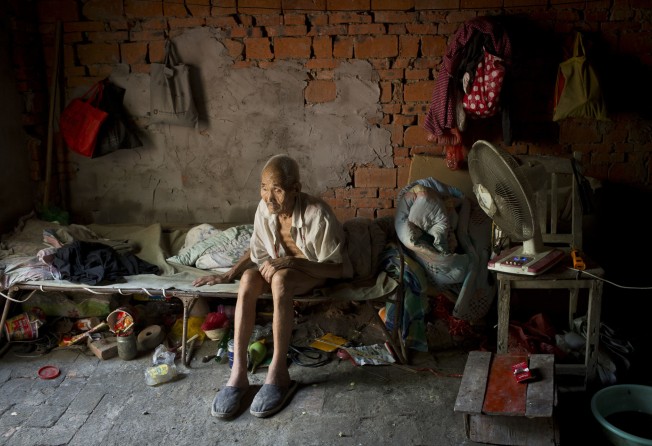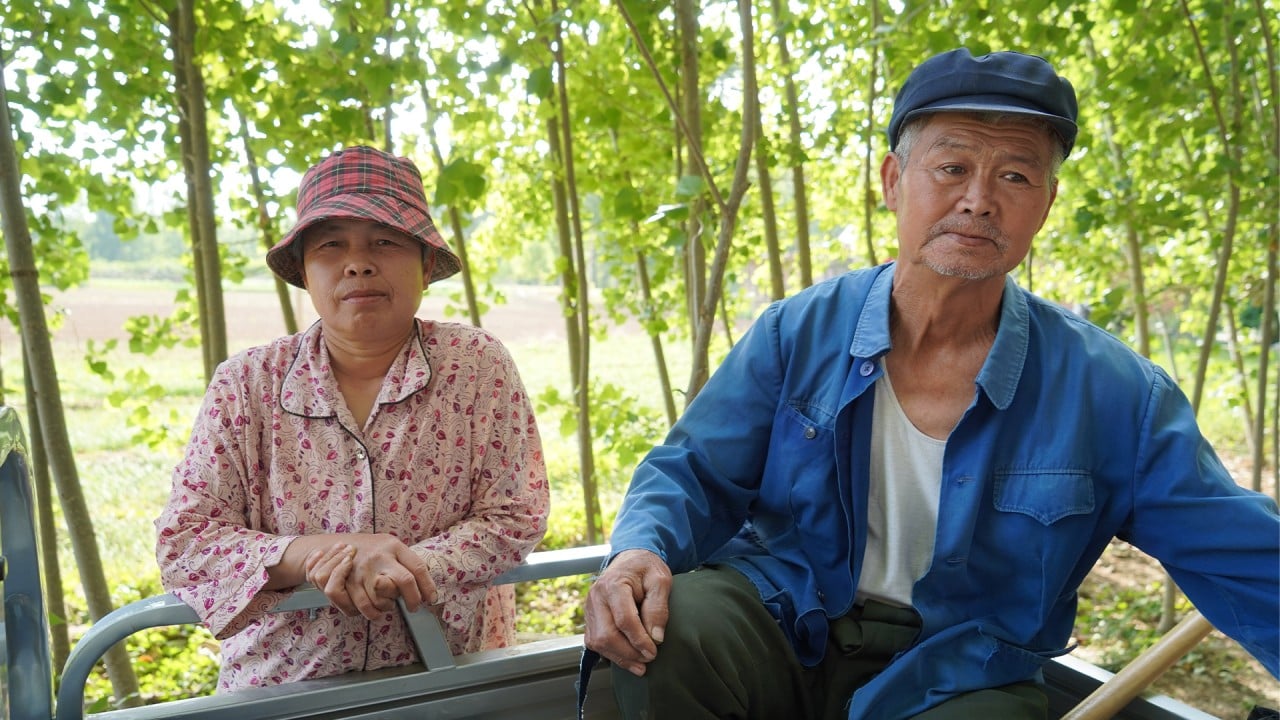
In China’s rapidly ageing society, elderly rural residents must not be left to fend for themselves
- China’s ageing problem is particularly acute in rural areas, where elderly residents often have no children around to care for them and pensions are too low to live on
- Reforms that would put rural pensions on par with those enjoyed by city dwellers are sorely needed, but remain a distant prospect

Old Granny Huang, well into her 70s, hated her empty house, which she described as a “tomb”. Perched halfway up a hill, it once housed seven; now only she and her bedridden husband live there. One daughter got married and moved to another village and her other four children migrated to the city.
The hunchbacked woman liked to park herself by her front door, eager for a chat with the occasional passers-by. I had met her a few years ago when I stayed in Jidao, a village in southwest China’s Guizhou province, for a project. I often chatted with her and was moved by her lonely life.
Granny Huang’s situation is far from unique in China’s vast countryside. With the largest elderly population in the world, China is facing a major demographic challenge. The problem is more pronounced in rural areas, due to a relative lack of young people; the proportion of those aged over 60 is 23.8 per cent, compared with 17.7 per cent in the city.
The Double Ninth Festival, which was declared the senior citizens’ festival in 2012, will occur on October 4 this year. I am not sure if Granny Huang will celebrate. The festival she really looks forward to is the Miao New Year in November, which brings her children back home from Dongguan. Apart from treats, each child brings a small bundle of cash for their parents.
I doubt the senior citizens’ festival will bring much joy to the rural elderly. A report by the Chinese Academy of Social Sciences highlights the severity of the ageing problem in rural China. Not only do those aged 60 and above make up more than 20 per cent of the rural population, but the proportion aged 65 and above has reached 16.57 per cent, exceeding the “ageing society” level and only 3.43 percentage points away from a “super-ageing society”.
The report also raises concerns about human capital in rural China, pointing out that the overall education level is low. It doesn’t mention the inadequate medical care rural residents receive.

The biggest question is: who is going to care for these people, among the poorest in China? Traditionally, Chinese people expect their children to care for them in old age. But these days, most able-bodied villagers venture out to urban areas to find work.
Furthermore, unlike their urban cousins, the rural elderly do not receive a workplace pension.
Well aware of the problem, the government introduced the New Rural Pension Scheme in 2009. It combines a basic government pension, available once participants reach 60, with individual contributions made annually for a minimum of 15 years. Although voluntary, most rural citizens are covered by the scheme.
Unfortunately, several studies have found that the pension plan is not working well. One report published in 2021, which focuses on Gansu province in northeast China, concludes that the benefits of the scheme are too meagre to meet the basic needs of participants.
The calculation is complicated. Let’s say a farmer pays 100 yuan (US$14) – the lowest and most common option – into the scheme every year for 15 years. Over that same period, the government contributes a basic rate of 55 yuan per month. The local government then adds a subsidy which varies from one place to another, but is usually a minimum of 33 yuan.
Upon retirement, the average number of months a pension is received is 139. This means that the farmer’s monthly pension will be 85 yuan. No one can live on this sum, even with a house and plot of land.
China’s low social security coverage in the countryside has hampered rural development. In recent years, various representatives and experts have called for a reform of the rural pension scheme.
Some have suggested asking younger pensioners to care for older ones, or to look after their house or land. Most have urged the authorities to increase the basic pension. Others have called for the pension scheme to be scrapped and a non-contributory pension to be introduced instead, much like the one enjoyed for decades by China’s urban citizens.
But Stanford University’s Scott Rozelle, an expert in rural development and the co-author of Invisible China – How the Rural-Urban Threatens China’s Rise, does not think this will happen. “It would not be feasible at a time when the economy is stagnating,” he told me. “It would be too expensive.”
He points out that the average pension provided by the government for the rural elderly is less than 10 per cent of the amount paid to the urban elderly. Currently, farmers primarily rely on their children for financial support, but this will gradually become unsustainable in a slowing economy and with fewer children around. “The government must take action now in trying to reduce the urban-rural gap,” Rozelle says.
He agrees that the government must substantially increase its spending on social security, especially in the countryside. In 2021, China’s spending on public pension was 5.3 per cent of its gross domestic product – low compared to the world average of 9-10 per cent. In Greece and Italy, spending on public pension hit 15-16 per cent.
Only with a substantial increase in rural pensions can the glaring urban-rural wealth gap narrow and stability be ensured.
In any case, the government has a duty of care to its rural elderly. Let’s not leave them behind.
Lijia Zhang is a rocket-factory worker turned social commentator, and the author of a novel, Lotus
